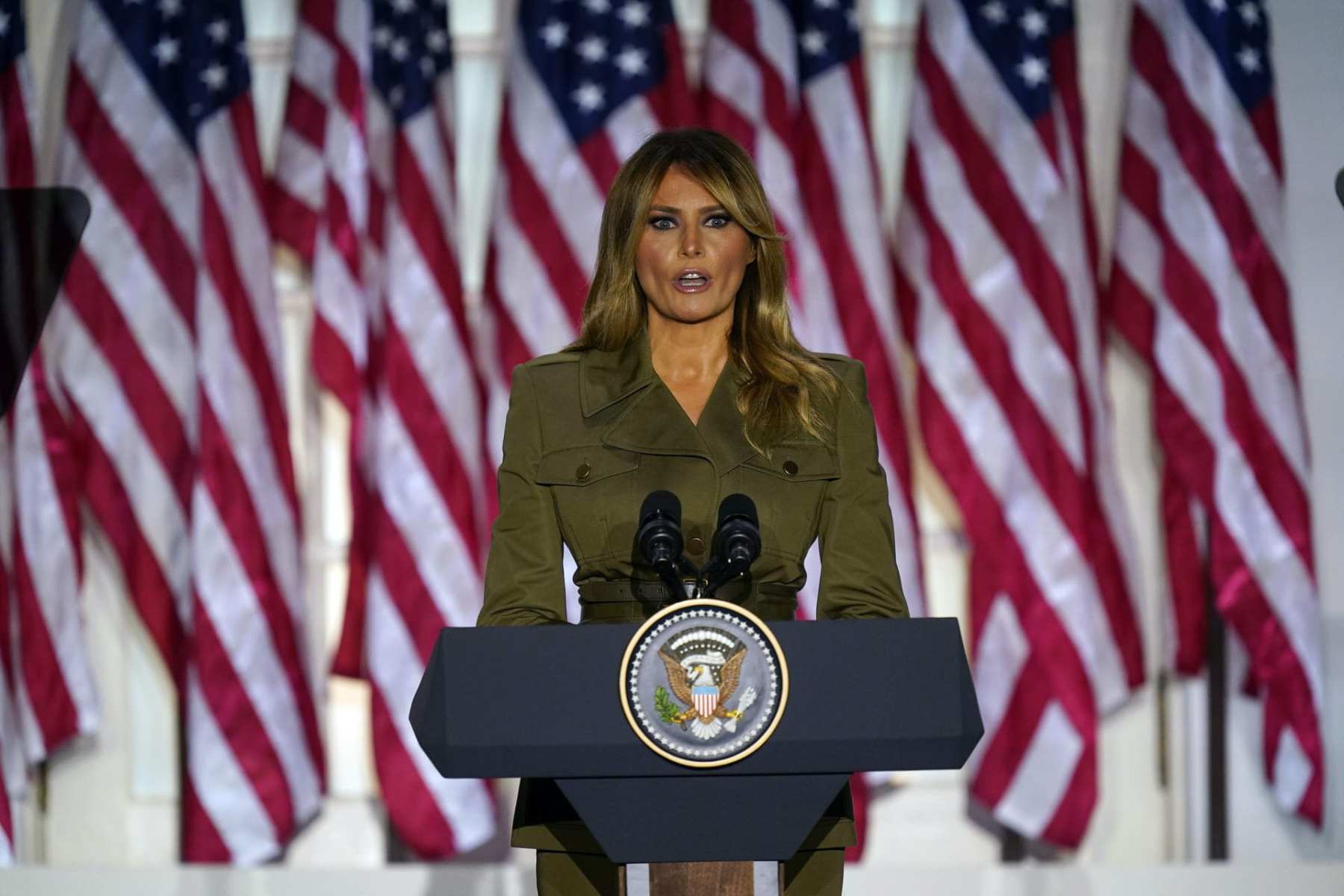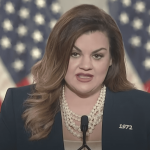To close out the second night of the Republican National Convention, first lady Melania Trump addressed something that’s largely been missing from the event: the coronavirus pandemic.
The speech, delivered to a small crowd in the White House Rose Garden, was the first meaningful recognition of the thousands who have lost their lives or their livelihoods during a convention that has skated over the pandemic’s impact.
Earlier in the night, Larry Kudlow, President Donald Trump’s top economic adviser, said the pandemic “was awful,” referring to the outbreak in the past tense, and adding that “health and economic impacts were tragic.”
The first lady opened her address by speaking directly to those affected by COVID-19, saying she wanted to acknowledge the way Americans’ lives have been upended since March.
“My deepest sympathy goes out to everyone who has lost a loved one and my prayers are with those who are ill or suffering,” she said. “I know many people are anxious and some feel helpless. I want you to know you’re not alone.”
She went on to thank health care professionals, frontline workers and teachers who “stepped up in this difficult time despite the risk to yourselves and your own families.”
Trump promised that her husband “will not stop fighting” until there is an effective treatment or vaccine. More than 170,000 people have died of the virus and 16.3 million remain unemployed. Despite slight improvements, the unemployment rate is still 10.2 percent nationwide, higher than at the peak of the Great Recession.
The rare address from the first lady was a tonal shift for the night.
Trump — an immigrant and a mother — used her speech to cite the recent centennial anniversary of the ratification of the 19th Amendment, which gave White women the right to vote, highlighting its importance to her as an “immigrant and a very independent woman.” She shared her own story of coming to the United States as a Slovenian immigrant and waiting a decade to become an American citizen.
“It is still one of the proudest moments in my life because with hard work and determination, I was able to achieve my own American dream,” Trump said.
She also focused on the civil unrest brought on by the death of George Floyd and the calls for racial justice. Trump encouraged unity, saying “we still have so much to learn from one another,” and called for an end to what she characterized as violent protests “being done in the name of justice.”
“Like all of us I have reflected on the racial unrest in our country,” she said. “It is a harsh reality that we are not proud of parts of our history.”
Trump highlighted her “Be Best” initiative, which focuses on issues facing children, namely in terms of their well-being and online safety, as well as opioid abuse. She addressed all three, speaking to the rise in mental health issues brought on by the pandemic and encouraging parents and teachers to look out for the signs of distress.
And to mothers, she issued a specific address that focused on the challenges around technology use, saying she knows what it feels like to be looking for answers on how to talk to your children about how “mean and manipulative” social media can be.
“Like every parent in this country, I feel there are so many lessons to teach our son,” said Trump, who shares a 14-year-old son, Barron, with the president. “I remind myself that I’m more fortunate than most and still have days that I look for wisdom and strength to do the very best I can for him.”
And, as if speaking to a sentiment many parents are feeling during the pandemic, Trump added: “There are just not enough hours in the day to do it all.”





